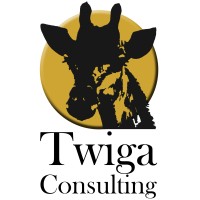Outsourcing in 2025: Smart Strategies Beyond Cost Cutting
Outsourcing has long been associated with cost savings, but in today’s business landscape, it’s far more than that. From enhancing agility and scalability to enabling access to specialized skills, outsourcing has evolved into a strategic lever for growth and resilience. In 2025, forward-looking organizations are rethinking outsourcing as a tool for innovation, efficiency, and competitive differentiation. At Twiga Consulting, we help companies unlock these broader benefits by aligning outsourcing strategies with organizational goals, compliance frameworks, and long-term transformation roadmaps.
The Evolution of Outsourcing
From Cost to Capability
Outsourcing today isn’t just about cheaper labour, it’s about gaining access to advanced skills, expertise, and technologies that would otherwise be difficult or expensive to build internally. Companies now rely on outsourcing partners for areas such as IT development, HR services, payroll, and cybersecurity, allowing them to leverage specialized knowledge without carrying the full overhead. This shift transforms outsourcing into a value driver, not just a cost saver.
Scalability and Agility
The markets of 2024–2025 are unpredictable, and businesses need the ability to adapt quickly. Outsourcing gives organizations the flexibility to expand or reduce operations in response to market demand, seasonal changes, or unexpected disruptions. This agility helps them avoid the financial strain of overstaffing during slow periods, while still having access to rapid support during growth surges.
Compliance and Risk Management
In South Africa, compliance with labour regulations, B-BBEE requirements, and data protection laws is becoming more complex. Many organizations are turning to outsourcing partners who specialize in compliance to reduce risks and ensure operations remain legally sound. Outsourcing doesn’t just help manage these risks, it also provides peace of mind by ensuring companies stay aligned with constantly evolving regulatory frameworks.
Smart Strategies for Outsourcing in 2025
Focus on Core vs. Non-Core Activities
Outsourcing is most effective when it allows companies to concentrate on their core strengths. Administrative and support services, such as payroll, recruitment, IT support, and office automation, can be handled externally, freeing leadership to focus on growth, innovation, and customer engagement. This ensures resources are dedicated where they matter most: creating value.
Build Partnerships, Not Just Contracts
Successful outsourcing goes beyond transactional relationships. Leading businesses are building long-term partnerships with providers who understand their culture, values, and strategic objectives. When providers are treated as partners rather than vendors, collaboration improves, communication flows more freely, and the outsourced services align seamlessly with company goals.
Leverage Technology
Technology is reshaping outsourcing at an unprecedented pace. Cloud platforms enable secure remote collaboration, AI-powered solutions streamline repetitive tasks, and automation reduces errors while improving efficiency. Businesses that embrace these innovations through outsourcing arrangements are finding they can deliver faster results, reduce costs in the long term, and enhance service quality simultaneously.
Measure Business Outcomes
To unlock the full potential of outsourcing, organizations need to measure success against more than just cost. By setting clear KPIs such as service quality, turnaround times, compliance metrics, and customer satisfaction, companies can evaluate whether outsourcing is driving real business value. This results-focused approach shifts outsourcing from a budget-cutting exercise to a growth strategy.
Plan for Integration
Integration remains one of the most common challenges in outsourcing. For outsourcing to truly deliver value, new processes and external teams must align smoothly with in-house systems such as SAP, HR platforms, and payroll solutions. A strong integration plan minimizes friction, improves collaboration, and ensures outsourced services complement existing workflows instead of disrupting them.
In 2025, outsourcing is no longer a back-office cost play—it’s a forward-looking strategy to futureproof your business. By choosing the right partners, aligning outsourcing with business objectives, and measuring results beyond cost, organizations can achieve agility, compliance, and innovation at scale.
At Twiga Consulting, we support clients in redefining outsourcing—whether in HR, finance, payroll, or office automation—so they can focus on what they do best while we handle the rest.
The insights shared in this article are based on recent industry reports and expert analyses from Deloitte Global Outsourcing Survey (2025), McKinsey & Company (2024), KPMG South Africa: Outsourcing in a Digital Era (2024), Forbes Future of Work (2025), PwC South Africa (2025).

